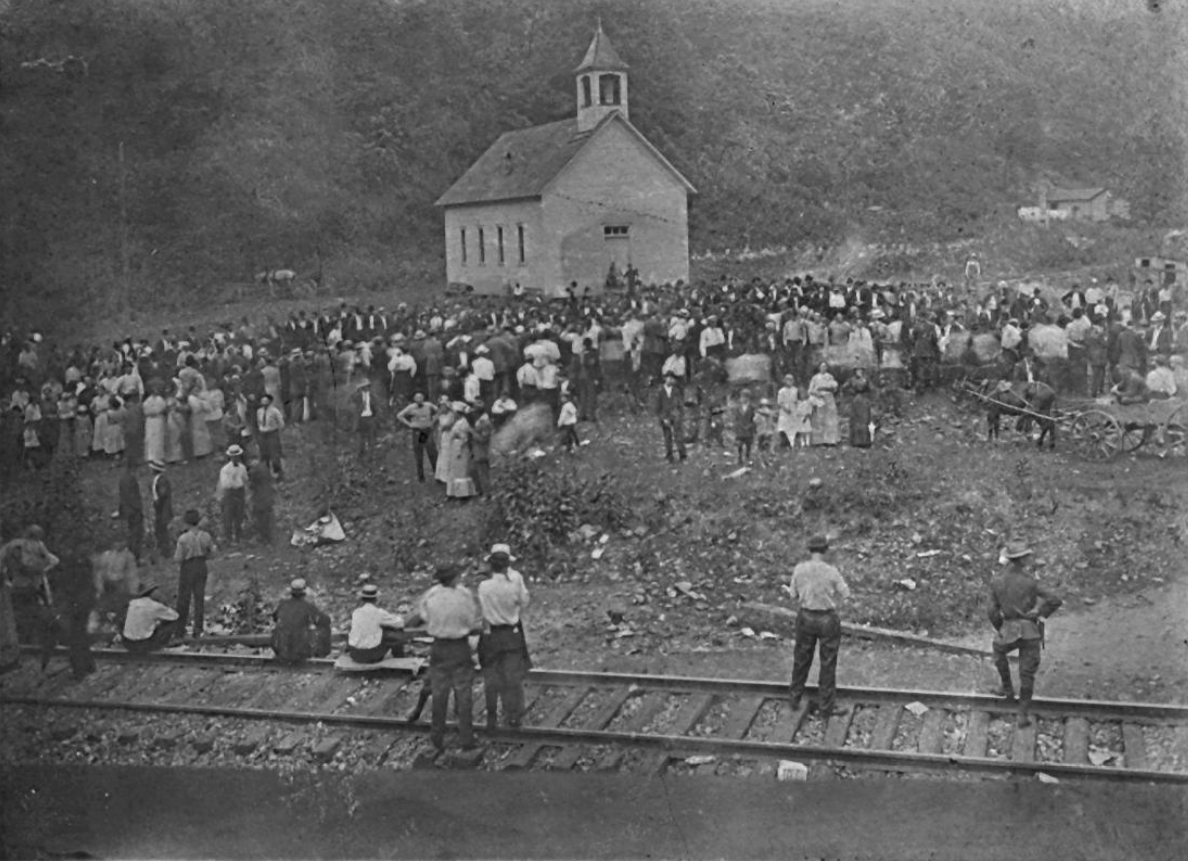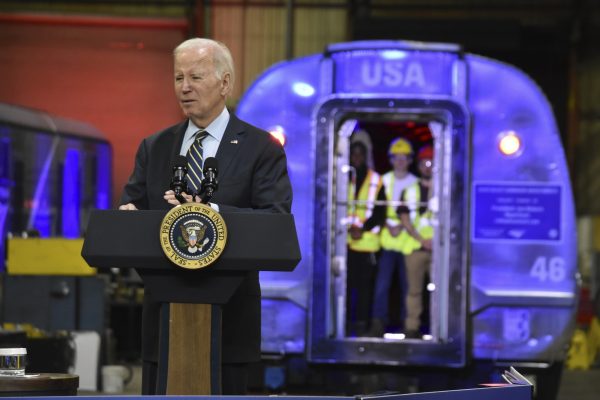Elizabeth Catte’s essay on the left-wing tradition in Appalachia is not so much a political argument as a beautifully written reflection on an important cultural tradition of dissent. She is part of a trend of thinkers and organizers who have come to reject capitalism per se as an immoral system that must be overthrown.
I believe in market systems and commerce. But I get why a large chunk of younger people think capitalism is bad. Most have never seen anything but crappy political economy policy organized by hypocrites and bureaucrats. If you are in your twenties and thirties, every political leader and op-ed writer and labor organizer and academic you have heard has told you that Obamacare—with its nightmarish copays and coinsurance and weird extractive bureaucracy—is the best you can get. Confronted with the prospect of a life of dreary disappointment and climate change, any rational person told to clap louder is going to say, screw that, let’s get rid of capitalism or whatever this thing is we have now.
I am slightly older, but my experience is not that different. I got into politics in 2002 as I watched immoral wars get peddled by lying journalists. I then worked as a staffer in Congress on a terrible set of bailout policies that ended up funneling wealth to greedy crooks and foreclosing on the middle class.
So I get it. But what is driving this impulse—whether in Appalachia or in Brooklyn—is not dislike of capitalism, per se, or disdain for markets. We have had market systems that incorporate slavery, and we have had market systems that promote freedom. Lumping them all under the name “capitalism” is conceptually lazy. Markets and finance are engineered social systems that can be used to promote freedom or undermine it, and throughout our history they have done both. A farmer’s market and a derivatives market are not the same thing, even if they both use the word market.
The political problem we face today—in Appalachia and elsewhere—boils down not to a debate over socialism versus capitalism, but to something simpler. Obama was a really important president at a pivotal moment in history, when a financial crisis gave him wide latitude to restructure our social obligations. And he screwed it up. Some 10 million foreclosures and no Wall Street felons. There are a lot of other ways he restructured society to make it less free and more unequal. For example, because of the way bailouts were structured, black-owned banks were a tenth as likely to get bailout money as other banks. Obama’s antitrust officials allowed mergers in telecoms, pharmaceuticals, airlines, and tech platforms, concentrating power in radical ways. Obama negotiated a bill to hand over Puerto Rico to hedge funds. And what did Obama do about opioids in rural America? A friend of mine in the administration told me that when the White House finally noticed the AIDS-level epidemic death toll, the suggestions proffered were . . . roundtables. She might have been exaggerating, but not by much.
The gist is that Obama reorganized our markets to push wealth and power upward, and to subvert our liberties. It is a painful story. It is not, however, a complex one. In 2008 we thought we were electing Franklin Delano Roosevelt, but really we elected Herbert Hoover.
Most centrists and left-wingers are embarrassed to entertain this simple tale. So they spin complex stories involving fancy theories. Instead of just saying, “Obama harmed tens of millions and induced a loss of faith in democracy, paving the way for Trump,” they make excuses. There are a host of centrist ones, but the left-wing excuse is to offer the Grand Philosophical Explanation of Why Capitalism Is Bad. After all, if it is the system that is at fault, then no one has to admit they should not have celebrated this guy in 2008, or that the people who told them to celebrate him for eight years were incompetent frauds. Everyone gets to protect his or her ego.
Even today you cannot get a single elected left-wing politician to say that Obama was a bad president. Think about that. We cannot have an honest discussion of what it meant to use power when Democrats were in charge, so the language of dissension is polluted with incoherent nonsense. All the grand philosophical musing and Democratic Socialists of America study groups do not matter when not a single elected official outside the Republican Party can make the simple, obvious point that Obama’s policies straight up made things worse.
This was not some capitalist plot. There was a lot of dissent within the Democratic Party about whether it was a good idea to do what Obama did. I was part of a network of people who tried to fight against the foreclosure nonsense and opposed Obama’s handing Puerto Rico over to hedge funds. We lost. And the people who made public explanations about these fights lied to cover up for Obama’s bad choices. They lied because some of them are frauds, but also because it was painful not to; Democratic voters and many left-wing voters were and still are deeply hostile to any criticism of Obama. He is beloved; according to Gallup polling, 95 percent of Democrats have a favorable view of him. To the extent there is skepticism, it is framed in ways that avoid admitting that his actions systemically ruined millions of lives.
It is not hard to get why people in Appalachia are mad. It is not cultural longing for some long-lost past. Hospitals are closing and it is hard to find a good doctor. Broadband is bad. It is hard to get anywhere because there are few flights, and there are few trains to ship crops and goods. Drug addiction is rampant. You can’t get a bank loan. Local media is dead because ad revenue has been pulled to Google and Facebook, and Fox News has filled the void. People are ringed by financiers and monopolists and don’t like it.
This is not a problem of capitalism. In 1980 these were politically healthier communities and not because Americans were singing the “Internationale.” We had a set of policies that engineered markets to enable freedom instead of subvert it. Our trains and airlines were regulated to ensure people could get to and from these regions. Our health care system was smaller and less corrupt. Our banks and farms were smaller and more local, so people had access to credit and nutritious food. Walmart and Dollar Tree did not destroy every independent shop, because there were laws restraining chain store expansion and protecting local communities and local manufacturing.
We can achieve a free society if we organize regulated competitive markets and that is what we should do. But before some grand ideological debate takes place, Democrats and the left have to just admit Obama screwed up in dangerous ways, and the institutions of the left and Democrats covered up for him.








